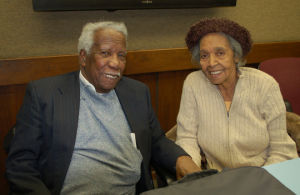However, for certain black man, the recognition and respect came much later or in some cases, never. William Cole, 90, doesn’t have the most pleasant memory of how the things used to be at the time. Cole served with the 93rd Infantry Division, in the Pacific Theatre during the Second World War and not many people knew thing s about the 93rd Infantry Division or about what they did.
The man said they were taking part in almost every single campaign but almost no recognition was given to any of the black men in the division, all led by white officers. He was 19 years old when he joined the service but he did not know that once he would be there, he would be separated and segregated as he was fighting for his country.
Cole’s training began at Camp McCoy in Wisconsin and continued at Fort Custer in Michigan. “That’s where we found out the color lines were changing,” he said during an interview with the Beloit Daily News in Beloit, where he is from. On their next stage in the training, the troops were separated by race. And that was the time he realized that a unit of all-blacks was being sent to Camp Wheeler, near Macon, Ga. He said the units were worried over the fact that they were given wooden rifles to march with them. As concerns were raised, they finally provided the units with real rifles, the StarTribune reports.
Some time later they were moved again, this time to the South Pacific, in 1944, where they started training in jungle-type warfare. He was in combat every time he was needed, but most of the times he worked as a communications technician with a radio, behind the lines. He remembered having been shot at, but never injured. He said the war he was fighting was much different to what was going on in Europe. At one point, he remembered, he was reported missing in action although he was not missing. The government did not want the enemy to know where the troops were, so they didn’t want anyone to know where he was.
“I was on a special mission in one place where the Japanese were moving supplies. We were to report back by radio,” he said. In April 1945, the 93rd Division captured a top Japanese officer, Colonel Muisu Ouchi, an achievement for which they were little recognized. When the bombs were dropped on Japan in 1945, the 93rd Division was in the Philippines, knowing nothing about the dropping of the bombs.
//
